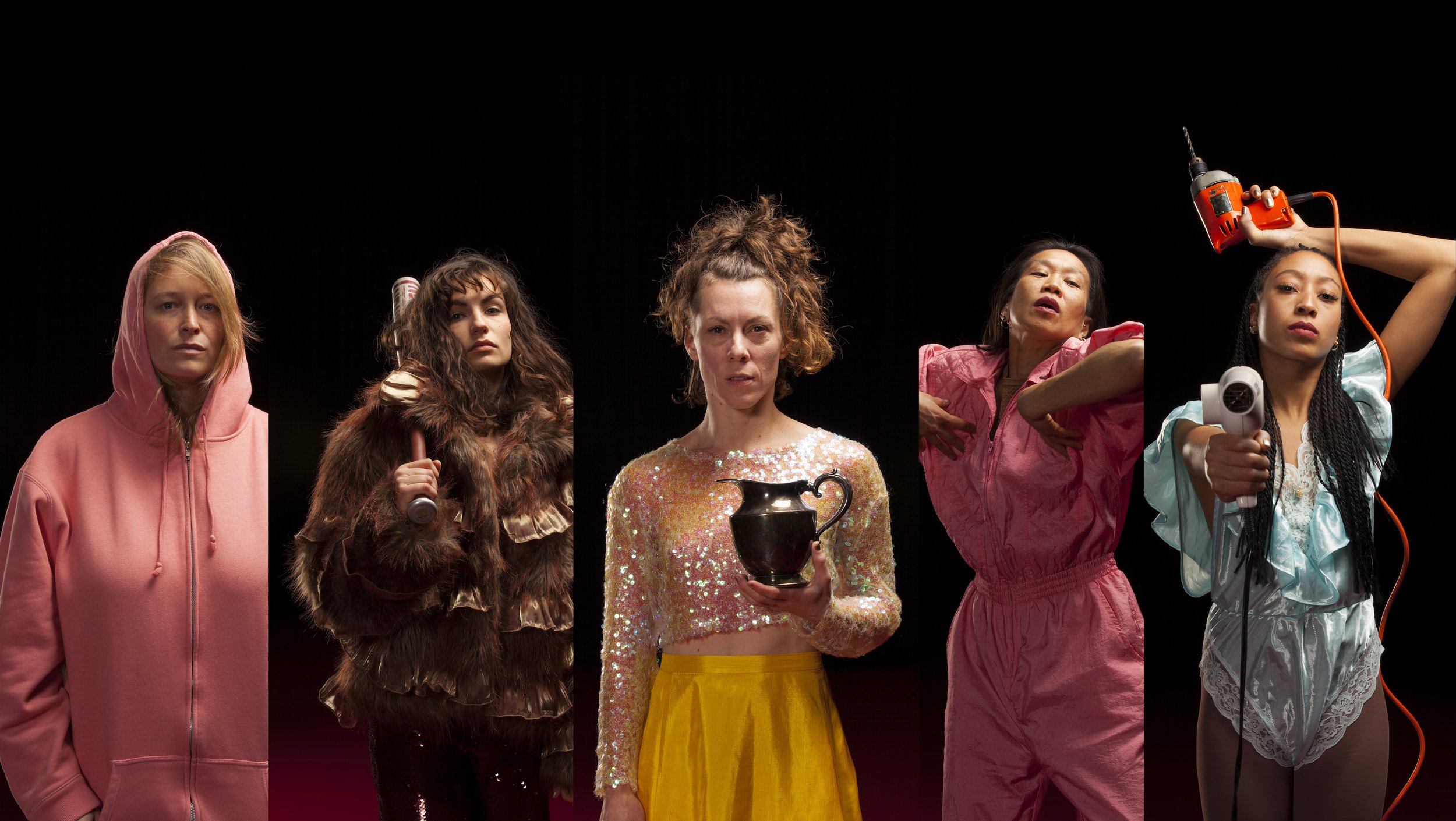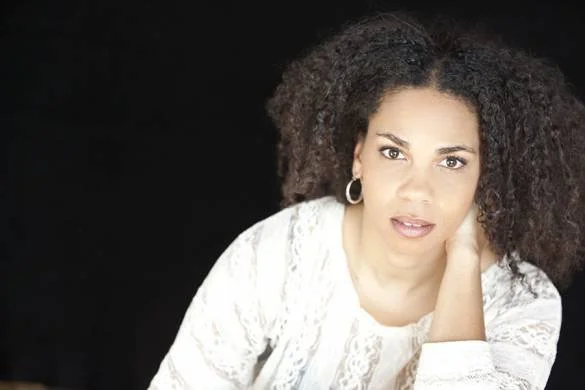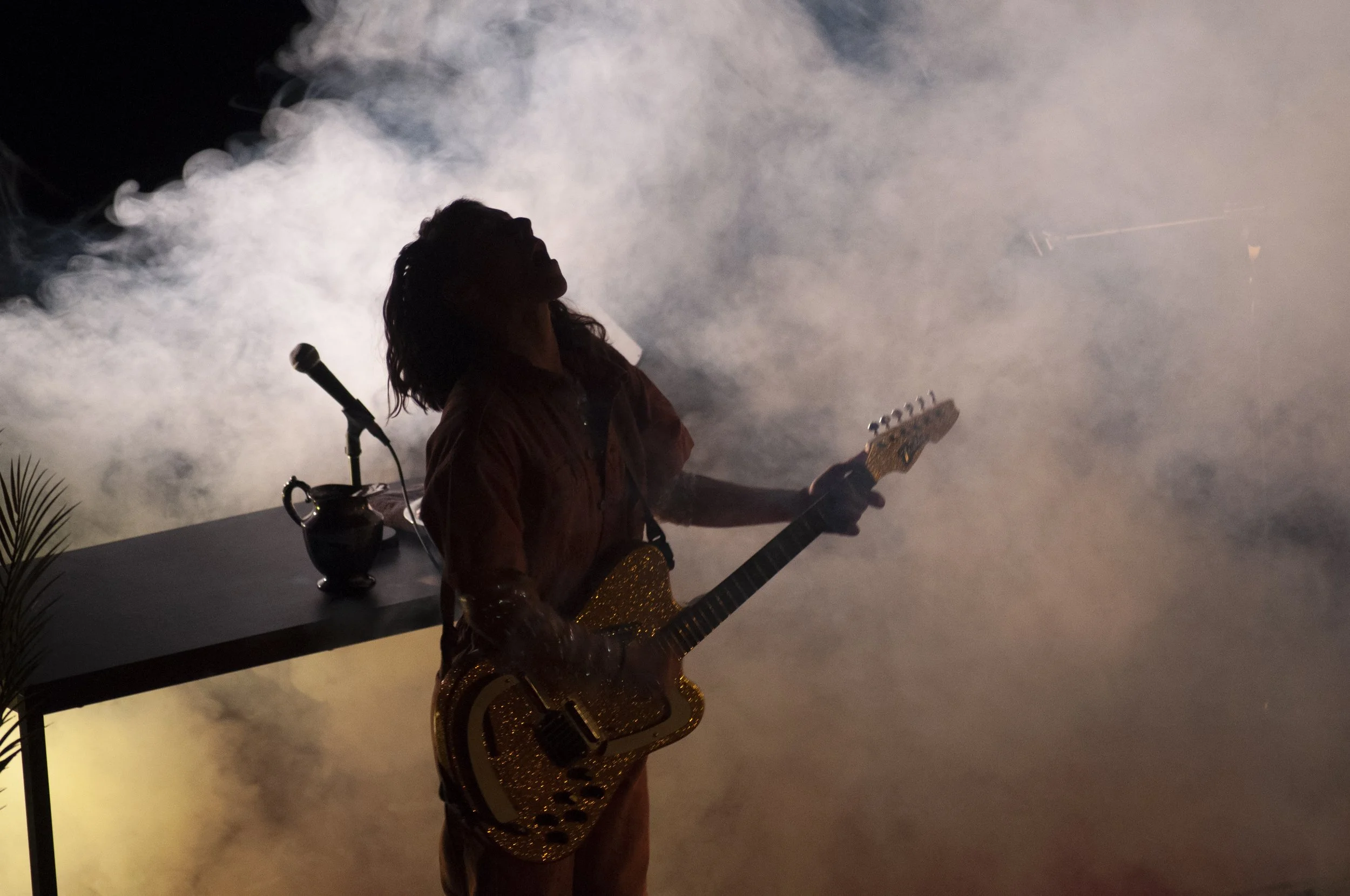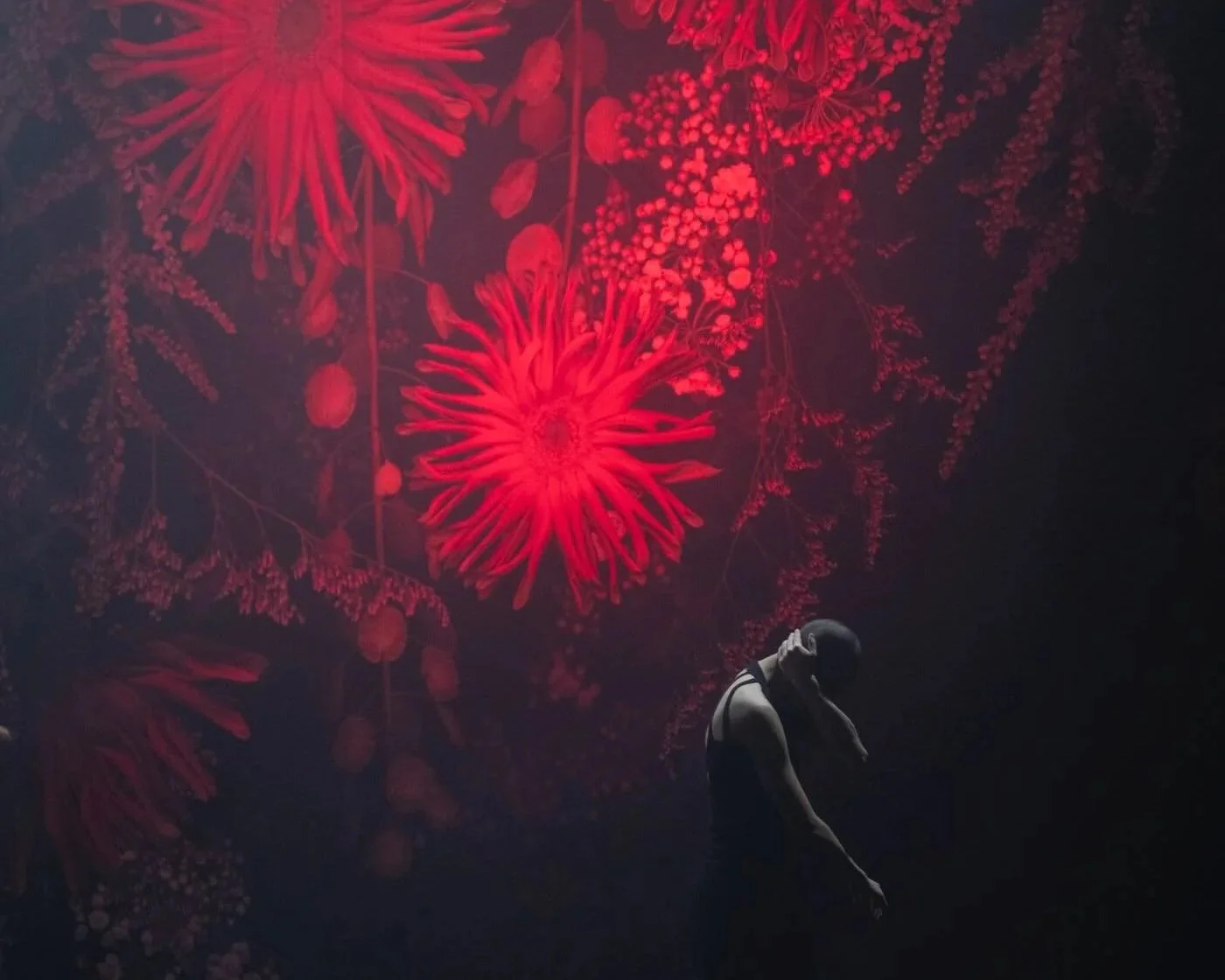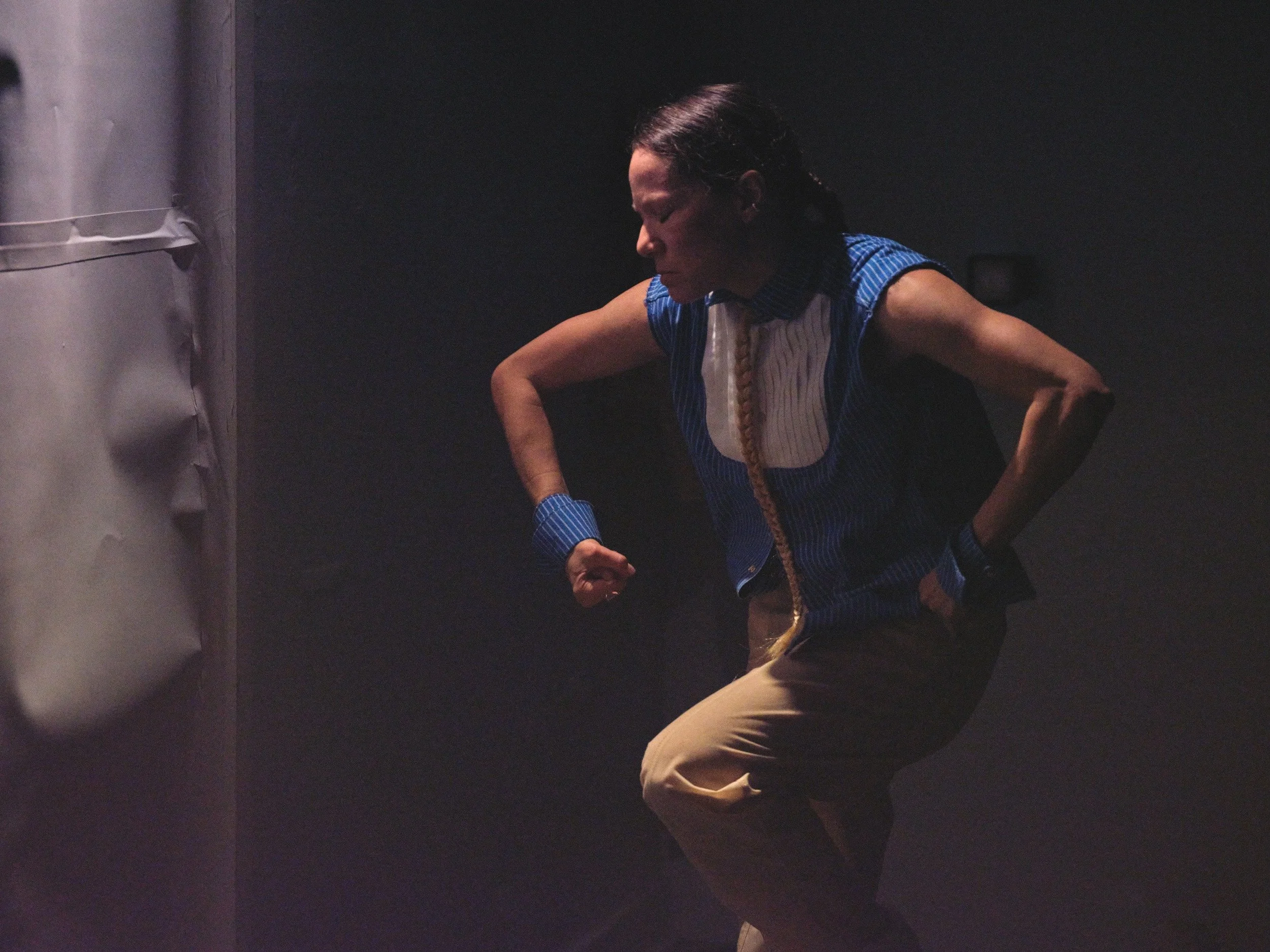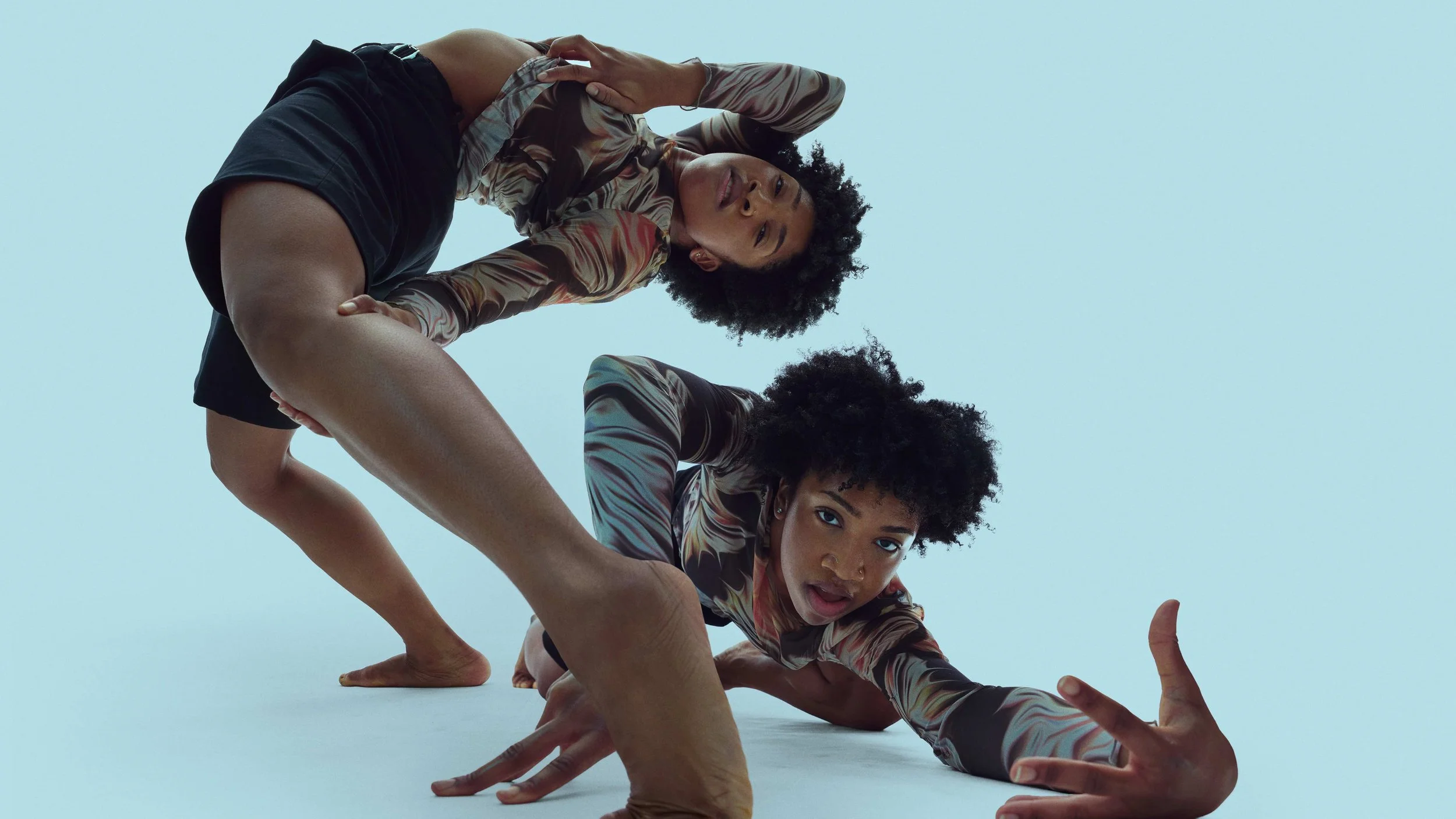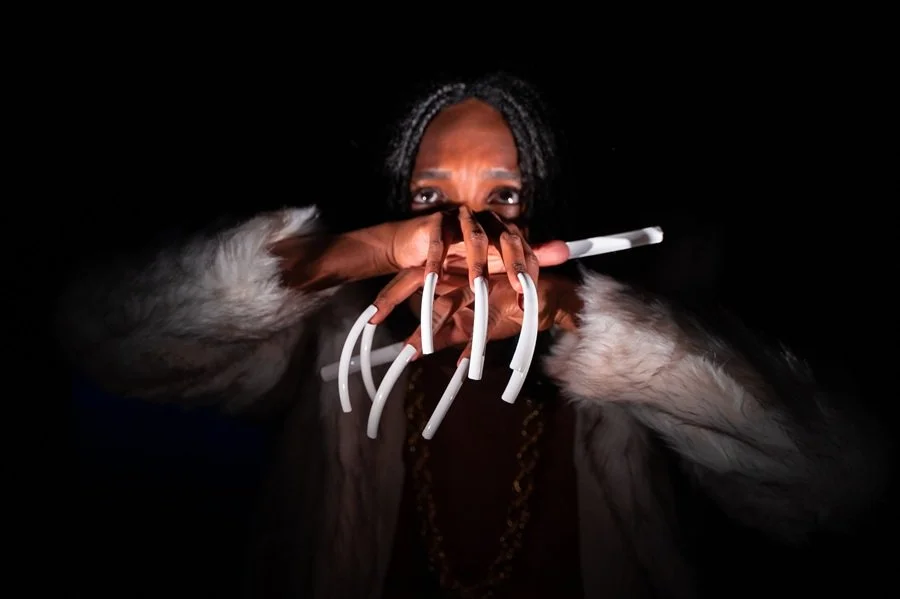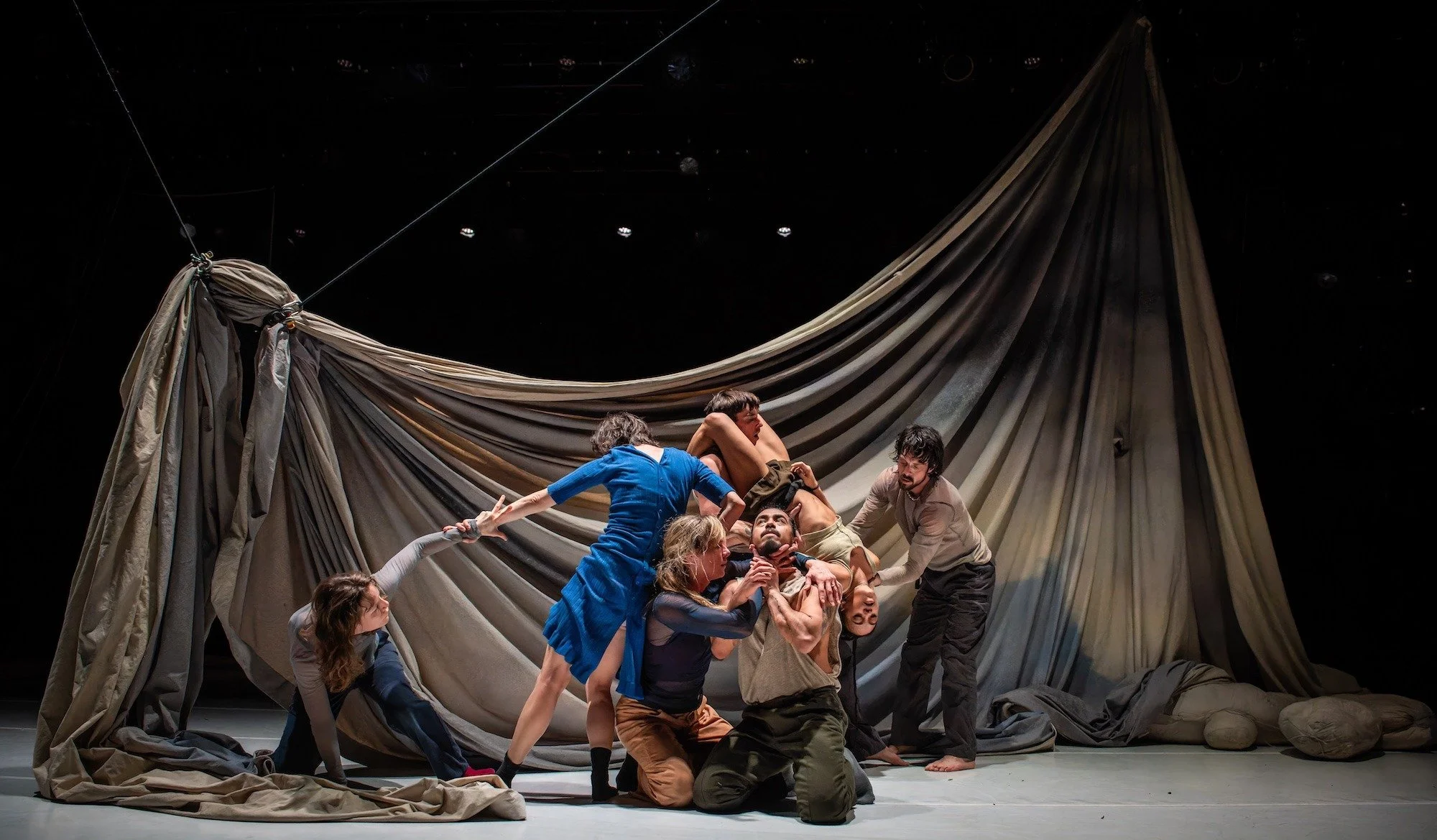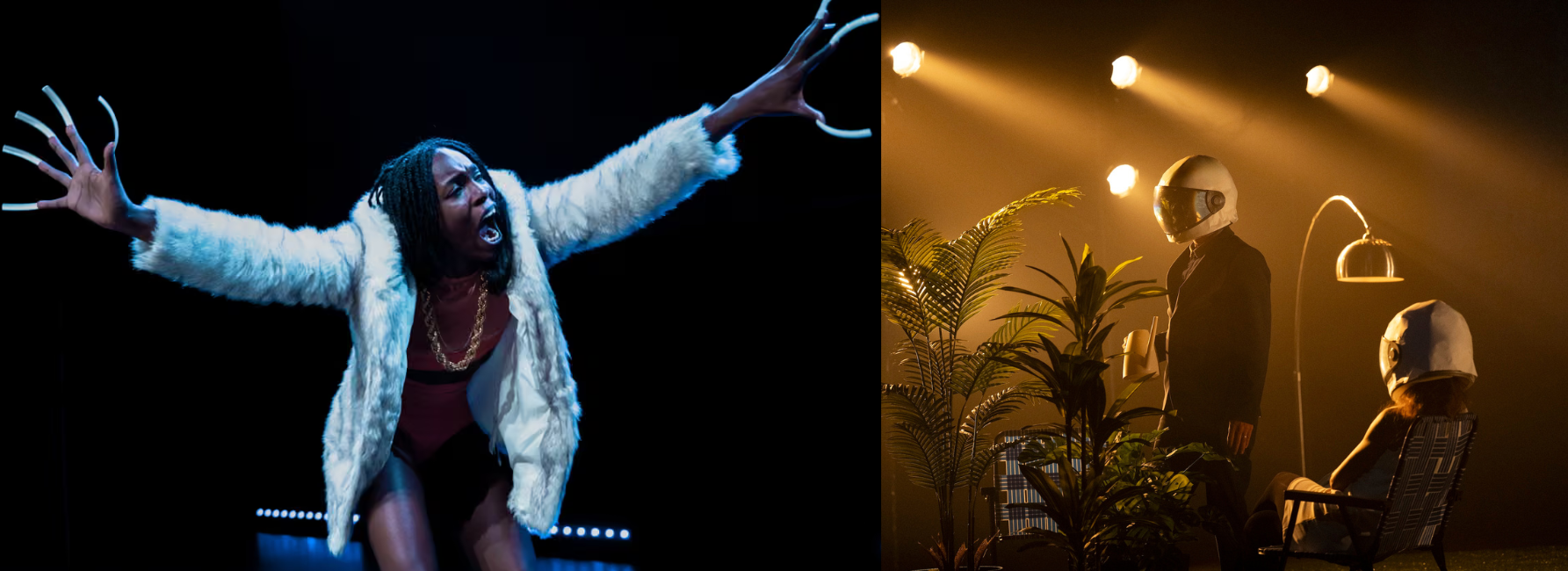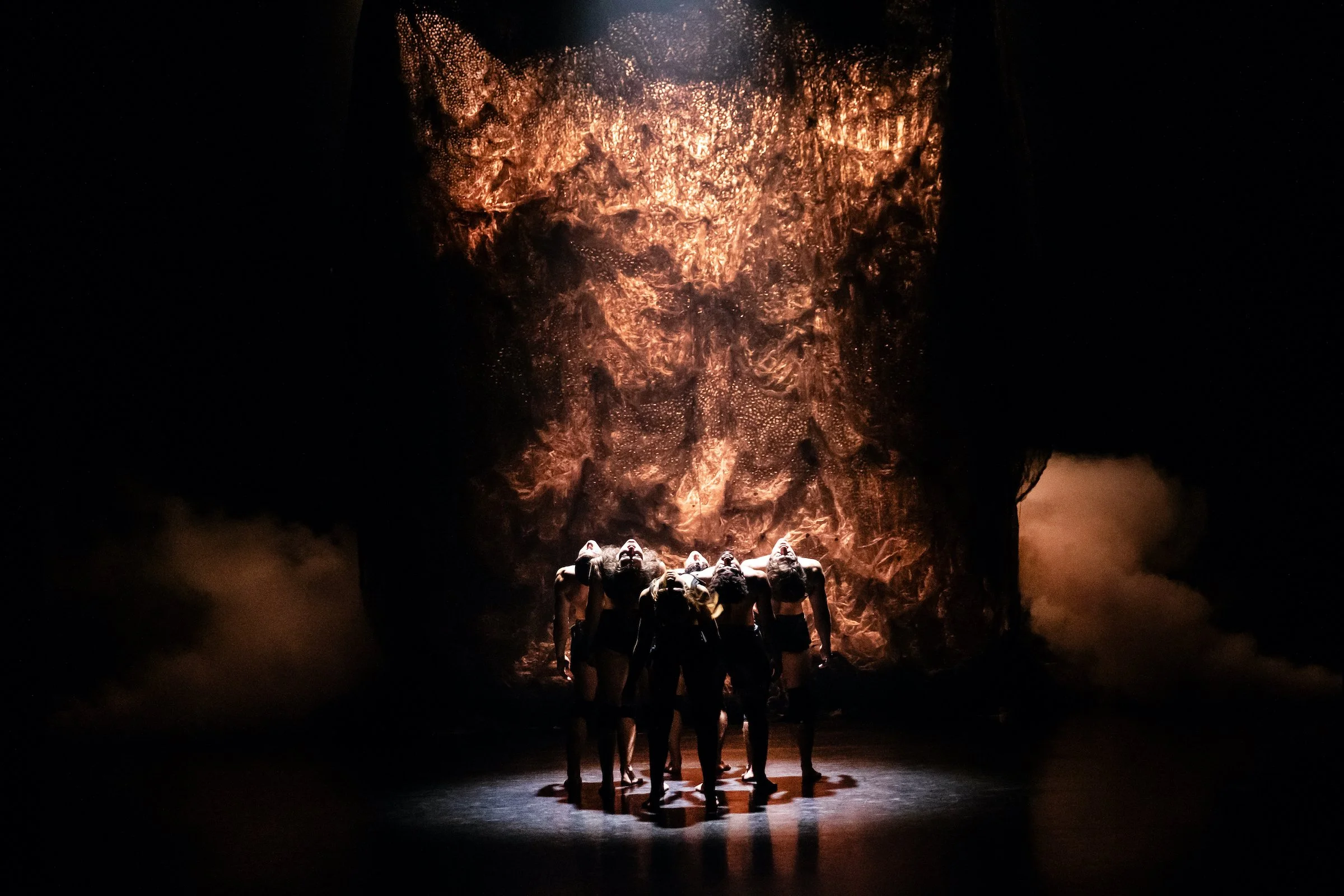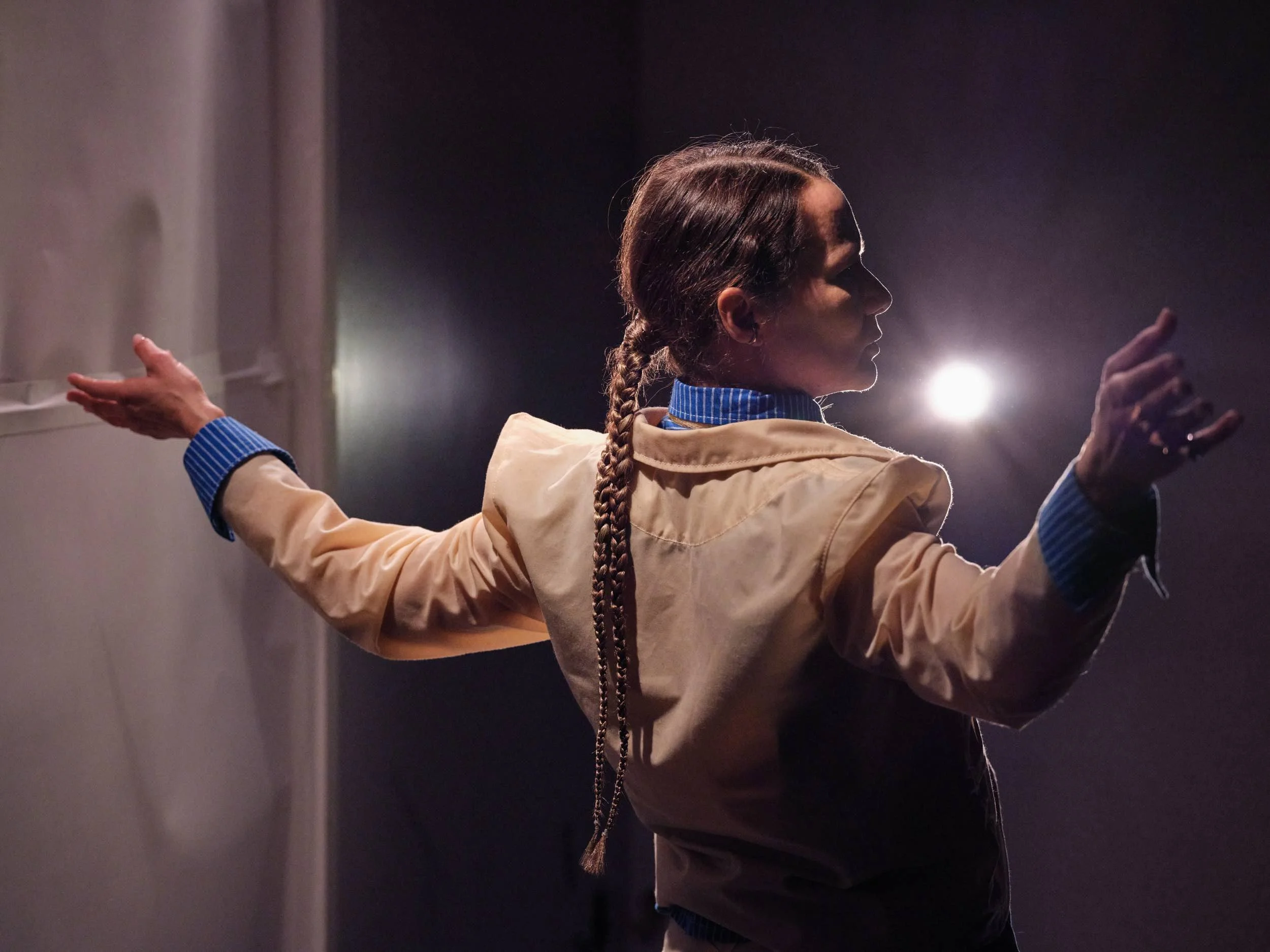Montreal's Mélanie Demers unleashes the female voice in La Goddam Voie Lactée
MAYDAY dancers learned everything from singing to playing guitar for a work formed by volatile times
Photos by Mathieu Doyon
The Dance Centre and the PuSh International Performing Arts Festival present La Goddam Voie Lactée from February 4 to 6
THE WILD AND vocally charged dance-theatre work La Goddam Voie Lactée burst out of the swirl of life-changing events that happened in the summer of 2020. With many tours cancelled and social movements tearing through social media and the Montreal streets around her, choreographer Mélanie Demers started to look at her work in new ways.
“There was a very vibrant ambiance that was happening in the summer of 2020 when I started to think of La Goddam Voie Lactée,” she tells Stir before her MAYDAY company brings the show to the Scotiabank Dance Centre as part of the PuSh Festival this week. “We were going through the third wave of #MeToo in Montreal and there was the death of George Floyd and all the Black Lives Matter movement happening at the time. I was thinking, ‘Who is in my pieces, who do I give light to?’ And I realized, looking at the repertoire, that I was giving a lot of attention to men.”
As Demers puts it, she challenged herself to “shift my gaze and change the narrative”. “I wanted to dive into the feminine psyche, which is something I was avoiding in my work,” says Demers, who explains she tends normally to be “very yang”.
Working with an all-women team, Mélanie Demers was driven to explore the diverse facets of the female psyche.
It’s important to note that Demers has long been known as much for her diversity of dancers as for her politically charged, darkly humorous dance-theatre works. After performing for Montreal’s hyperenergized O Vertigo and before founding her own company in 2007, she journeyed through Africa to Haiti and South America, teaching and working in dance, and developing a desire to create pieces that spoke directly to the world and its issues. Her work didn’t debut on the West Coast till 2017, when plastic orchid factory staged Animal Triste, a provocative critique of human evolution that found its mostly male dancers cavorting and contorting in symbolic strings of pearls.
For La Goddam Voie Lactée, she cast five diverse female dancers.
“To look at femininity not in a monolithic block, not in a stereotypical way, was very, very liberating for me,” she reflects. “We allowed ourselves to have divergent voices and contradictions, to have multiple voices to speak out.
“I wanted to talk about other things than being a woman,” she emphasizes. “I wanted to talk about how we look at the world from the female condition; I feel the work expands and observes and comments, and collects stories and history.”
Knowing that her dancers would have to be somewhat physically separated on-stage due to pandemic restrictions, she did something radical to connect them in other ways. Demers invited Montreal singer-songwriter-composer Frannie Holder onstage to teach the dancers to sing together. “We started the process by literally creating a choir to harmonize our voices—to have a presence together,” Demers recounts.
But the voices that are unleashed in La Goddam Voie Lactée go beyond that singing. The women vocalize, scream, laugh, and cry, often with the aid of a microphone.
“We hear human voices throughout the whole show,” Demers says. “We call it a vocal landscape.”
Dancers had to learn how to play the electric guitar for La Goddam Voie Lactée. Photo by Cloé Pluquet
In the series of tableaux and vignettes she collages in La Goddam Voie Lactée, Demers adds to the soundscape by having some dancers play the electric guitar. And yes, they had to learn how to do that, too.
The result is an explosion of raw movement and sound that mixes disciplines and defies easy categorization. Demers says the title derives in part from the idea of the big bang, and the concept that even though we’re tiny specks in the cosmos, our emotions can feel huge. The choreographer also uses the word “catharsis” to describe La Goddam Voie Lactée, sometimes likening it to a kind of mourning rite or spiritual quest.
But mostly she looks at this work that came out of last year’s shutdowns and upheaval as a celebration: “There is a beauty to let the anger be visible—a beauty to have women facing their fears and being badass,” she says. “There is something that is very… We have a word in French, jouissif: they’re enjoying going through this darkness!”


